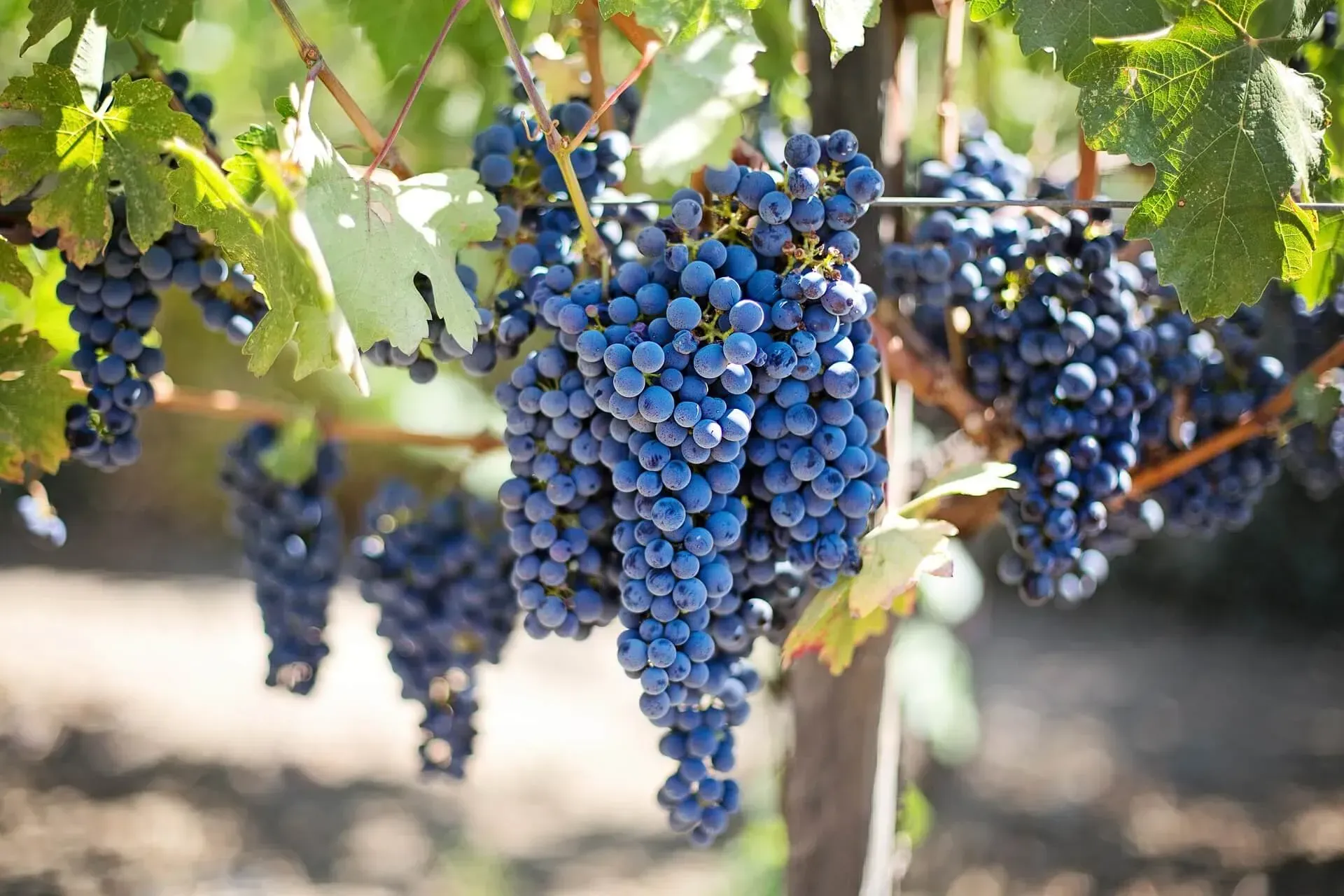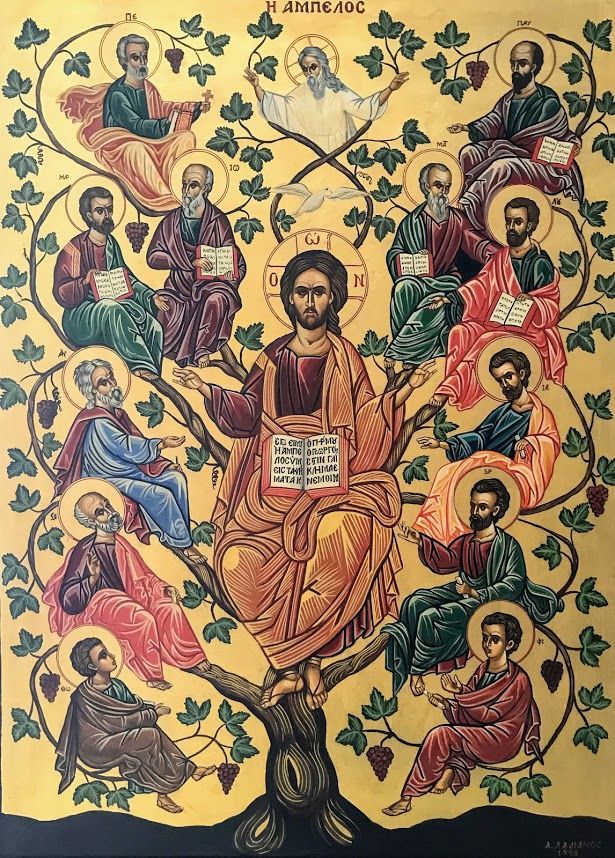Message of Abbot Paul - Wednesday - 1st May 2024
Abbot Paul • April 30, 2024
It’s somewhat difficult to write a short message on a Gospel text twice in one week. Today’s Gospel passage, (Jn 15: 1-8), was also read on Sunday. It’s that part of Jesus’ farewell discourse at the Last Supper, where he compares the union that must exist between his disciples and himself to a vine and its branches. It’s a beautiful image with a vivid metaphor to describe that most intimate union between God and ourselves in, through and with Christ Jesus. At key moments in his ministry, Christ emphasized his equality with God in the clearest possible terminology. The strongest affirmations of his divinity employed the name for God used when the Father first revealed himself to Moses, "I AM" or “I AM WHO I AM” (Exodus 3:14). Jesus has already said, "I am the Light of the world" (John 8:12); "I am the Bread of Life" (John 6:35); "I am the Way, the Truth and the Life" (John 14:6); and "I am the Door" (John 10:9), “I am the Good Shepherd” (Jn 10:11) and, my favourite, “Before Abraham was, I am” (Jn 8: 58). Now, the night before his Passion and Death, he tells them, "I am the Vine." Like the other great "I am" passages recorded in the Gospel of John, it points to his divinity. Each one is a metaphor that elevates Jesus to the level of Creator, Sustainer, Saviour and Lord, all titles that can be claimed by God alone.
“Jesus said to his disciples: ‘I am the true vine, and my Father is the vinedresser. Every branch in me that bears no fruit he cuts away, and every branch that does bear fruit he prunes to make it bear even more. You are pruned already, by means of the word that I have spoken to you. Make your home in me, as I make mine in you. As a branch cannot bear fruit all by itself, but must remain part of the vine, neither can you unless you remain in me.’” Jesus says that his disciples are like branches that bear fruit but need pruning. There is no such thing as a fruitless Christian. Every Christian bears some fruit. You may have to look hard to find even a small grape, but if you look hard enough, you will find something. It is the essence of the Christian life to bear fruit and, in Matthew, Jesus says, “By their fruits you will know them.” (Mt 7: 16). The Greek word Jesus uses for “to prune” also means “to cleanse”, so this gives us an indication of what pruning really means for Jesus, “who came to save his people from their sins.” Pruning is necessary in our spiritual lives. The Father removes our sins and all superfluous things that limit our fruitfulness. One of the best ways to cleanse us is to allow suffering to come into our lives. He prunes us with a vinedresser's knife, which is the word of God. Sometimes it hurts, and we question what he is doing. It may seem we are the only branch getting pruned, while other branches need it more. But the Vinedresser knows what he is doing. Spiritual pruning can take many forms. it may be sickness, hardships or loss of material possessions. It may be persecution or slander from non-Christians. For some it is the loss of a loved one or grief in a relationship. Or it may be a combination of some or all of these. Whatever the method, the effect is to narrow our focus and improve the quality of our fruit. Whatever the method of pruning God uses, we can be assured that he cares for us and wants us to bear much fruit. He wants to free us from what drains our life and energy. He continues his care throughout our lives to keep us spiritually healthy and productive.
Above all, what is truly essential is that we remain united to Christ and “live in him”. Just as he is united with the Father and is one with him. “I am the vine, you are the branches. Whoever remains in me, with me in him, bears fruit in plenty; for cut off from me you can do nothing. Anyone who does not remain in me is like a branch that has been thrown away – he withers; these branches are collected and thrown on the fire, and they are burnt. If you remain in me and my words remain in you, you may ask what you will and you shall get it. It is to the glory of my Father that you should bear much fruit, and then you will be my disciples.” Jesus shares his very life with us by giving us the gift of the Holy Spirit, feeding us with his Body and Blood and instructing us with his Word. In this way, we will be united with Jesus and in him with the Father, whose greatest desire is that we should bear much fruit. God has no other desire than what is best for us.











